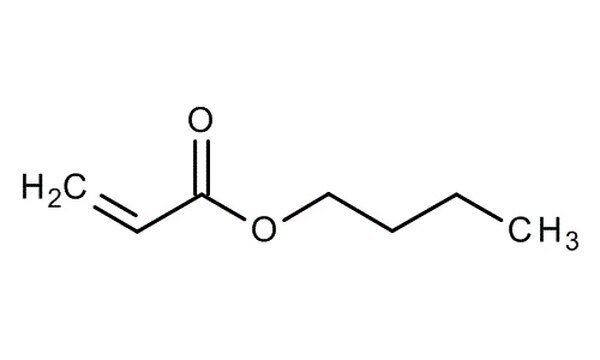Preparation of hybrid adhesive solution with macromolecular monomers sealed by methacrylate
Hybrid polymer solutions were prepared using methacrylate-capped macromonomers, which contain essentially no strong acids or metal catalysts. The average molecular weight of the macromonomer was determined by the GP°C method using polystyrene as a standard substance, and the result was M6600, Mw=7200 Dalton.
The initial addition mixture was prepared to contain 5973 g of 2-ethylhexyl acrylate (225EHA), 22.72 g of ethylene-butene macromonomer, 17.05 g of methyl acrylate MA) 5.67 g of acrylic acid-2-hydroxyethyl ester (2-HEA) in 55.0 g of ethyl acetate (EtOAc), 64.19 g of hexane (standard mixed isomeric grade) and 028 g of even aminodiisobutylene (ABN), was added to a 3-liter, 4-necked round-bottom flask equipped with a stainless steel stirrer, thermometer, condenser, water bath, and low-speed addition funnel.

The initial addition mixture was heated to reflux while stirring. After ten minutes of reflux, simultaneously but over 2 h 30 and 3 h, respectively, a monomer mixture containing 229.0 g of 2EHA, 128.59 g of ethylene-butene macromonomer, 65.45 g of MA, 21.84 g of 2-HEA, 27.5 g of hexane and a monomer mixture containing 236.5 g of EtOAc, 55.0 g of hexane, 138 g of AIBN. At the end of the addition, the flask contents were kept under reflux for 2 hours. Next, the residual macromonomer was removed by adding a short half-life initiator within 1 hour, and then the solution was held at reflux for 1 hour. Finally, a diluent consisting of 1833 g of toluene was slowly added to the reaction mass while the contents were cooled to room temperature. The polymer solution maintained its fluid viscosity throughout the reaction and did not tend to attach to the reactor stirrer.
The polymer solution contained 42.7% solids and had a Brook6eld viscosity of 2500 mPas. Coagulation
The average molecular weight determined by gel permeation chromatography was Mw=560,000, M=34,000.

Leave a Reply
Want to join the discussion?Feel free to contribute!